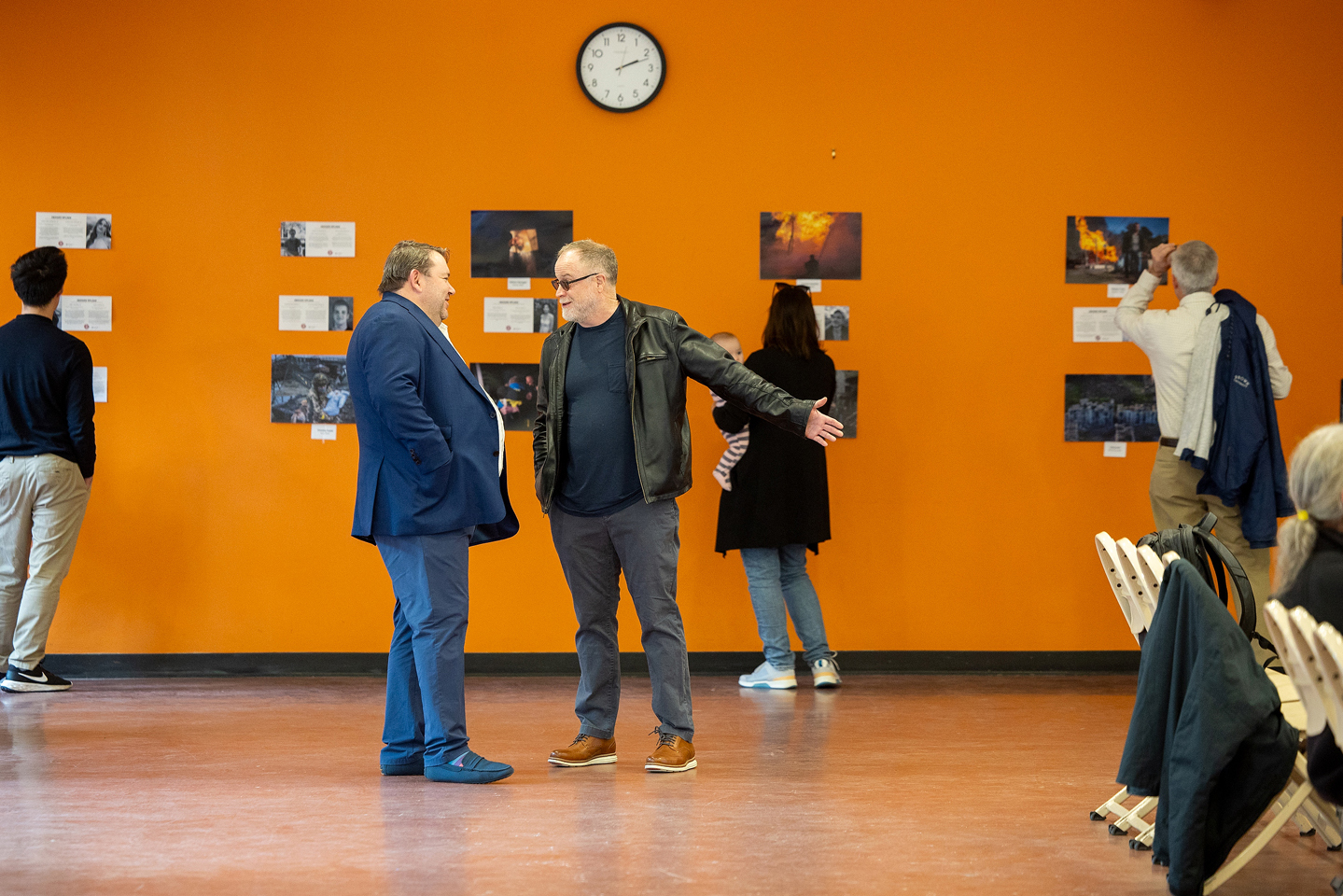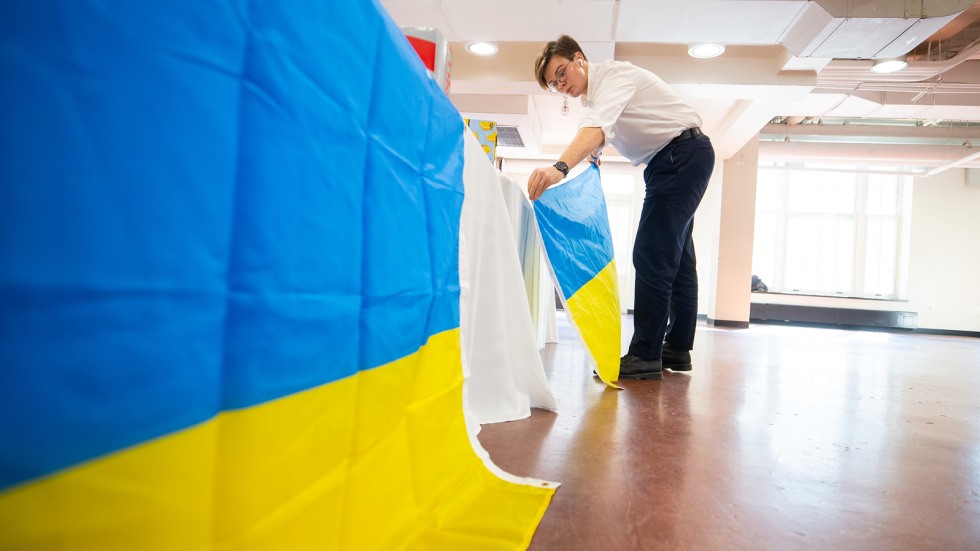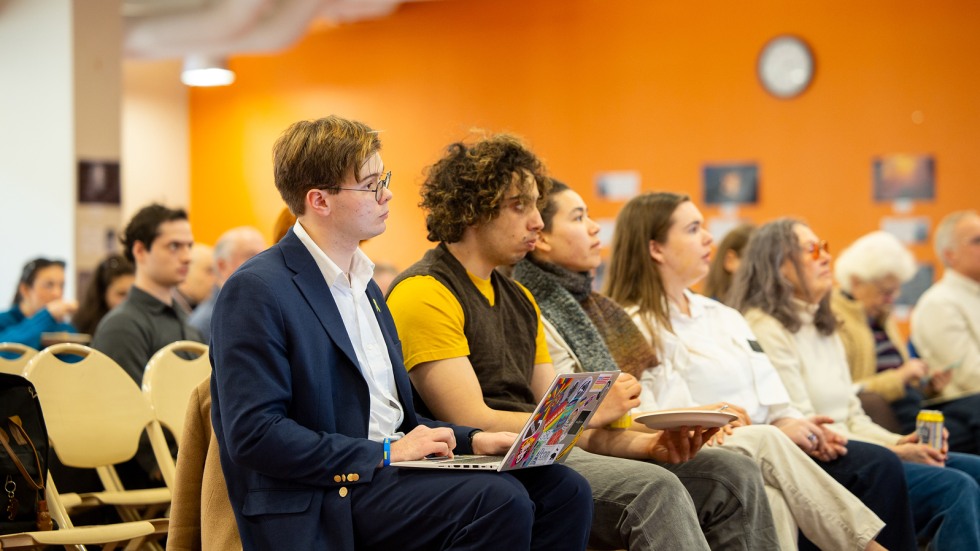PROVIDENCE, R.I. [Brown University] — On Feb. 24, 2022, Russian troops invaded Ukraine in what would become the largest attack on a European country since World War II.

On Tuesday, Feb. 27, the Ukrainian Students Association, in conjunction with Brown’s Watson Institute for International and Public Affairs and the departments of history and Slavic studies, hosted a dual event in the Stephen Robert ’62 Campus Center to mark the two-year anniversary of the invasion and bring attention to the country’s financial needs as world leaders begin to calculate the estimated cost of reconstruction.
Vladyslav Rashkovan, the alternate executive director of the International Monetary Fund, delivered a lecture on Ukrainian reconstruction, resilience and the crucial diplomatic ties between Ukraine, Europe and the United States.
Brown sophomore Oleksii Shebanov, who is vice president of the Ukrainian Students Association, said selecting Rashkovan as the speaker was a natural choice. Rashkovan’s work at the IMF, as well as his previous role as a deputy governor of the National Bank of Ukraine, has positioned him at the center of many international projects to provide financial support to Ukraine and plan its post-war reconstruction and modernization.
“In many ways, campuses are like think tanks, in that they generate so many thoughts and discussions,” Shebanov said. “In 20 or 30 years, people of my age will hopefully be in Congress, so it’s an important mission to talk about Ukraine to a younger generation.”
Bookending the lecture, a photo exhibition installed in the campus center displayed images of war-torn Ukraine, captured by prominent correspondents and photojournalists like Albert Lores, Marcus Yam, Nadia Ragozhina and Yevhen Kotenko.
Though admission was free, a fundraising table set up throughout the event’s duration collected donations on behalf of the Lotus Foundation, a student-run nonprofit dedicated to supporting Ukrainian doctors, civilians and soldiers through donations of medical supplies, helmets, backpacks and more. In exchange, donors received small tokens of gratitude, like Ukrainian candies, pins and stickers.
In addition to promoting the rich culture and history of Ukraine, the Ukrainian Students Association’s main priority is to financially support the country throughout the protracted conflict; according to the most recent report by the World Bank, the total cost of reconstruction and recovery in Ukraine is estimated to be $486 billion over the next decade, with $15 billion needed in 2024 alone for immediate restoration of housing, soft infrastructure, energy and transport.

